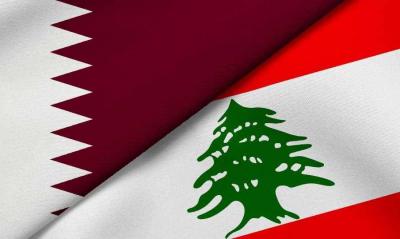The state of Qatar continues to host leaders and representatives from various political forces and parties in Lebanon, away from the media noise that other countries and entities typically generate in their efforts to help resolve the escalating crisis in Lebanon. This includes the election of a new president and the formation of a new government to tackle the challenges of reviving the state and its paralyzed institutions, as reported by "Al-Liwaa".
What distinguishes the Qatari initiative from others, and what are its chances of success? Qatar's continuous efforts are backed by its good and regular relations with the Lebanese state and most political parties, without discrimination or favoritism. Qatar has consistently shown its commitment to support Lebanon during the multiple crises faced by its people, as well as the wars and Israeli attacks experienced over the past decades. Furthermore, Qatar has made generous contributions to reconstruction and investment, and has supported the Lebanese army in coping with the severe financial and economic crisis that Lebanon has faced for the past five years, both materially and morally, enabling it to carry out its duties in maintaining security and stability and defending the nation.
Additionally, Qatar's good relations with Arab countries, its balanced regional ties, its relationship with Iran, and its advanced collaboration with the United States play a significant role in overcoming many obstacles that hinder resolving the ongoing crisis in Lebanon. This could ultimately lead to an agreement among all parties to elect a new president.
Qatar's efforts are also based on the success it achieved in the past when it brought Lebanese political factions together in Doha to solve the issue arising from Hezbollah's armed incursion into Beirut on May 7, 2008, which caused widespread death, terror, and destruction under false pretexts. At that time, Qatar succeeded in reaching the Doha Agreement, which helped prevent Lebanon from sliding into a devastating sectarian and religious war that threatened its unity, security, and future.
Since Israel's aggressive war on the Gaza Strip, Qatar has played a distinct role, hosting numerous public and secret meetings to halt the Israeli war on the Palestinian people. It has fulfilled its duty by providing generous financial support to help Palestinians withstand the organized Zionist killing machine, and has faced a series of Israeli threats and pressures to stop its support for the Palestinian people.
All these factors motivate the Qatari state to engage with leaders and representatives of political parties and parliamentary blocs these days, aiming to repeat its previous experiences in making the necessary efforts to unite the differing Lebanese political factions around common grounds, to end the crisis and resolve the issue of electing a new president. This is to avoid further damage to Lebanon caused by the presidential vacuum and to preempt regional and international agreements and deals that are becoming apparent following the end of the Israeli war on Gaza, according to "Al-Liwaa".




